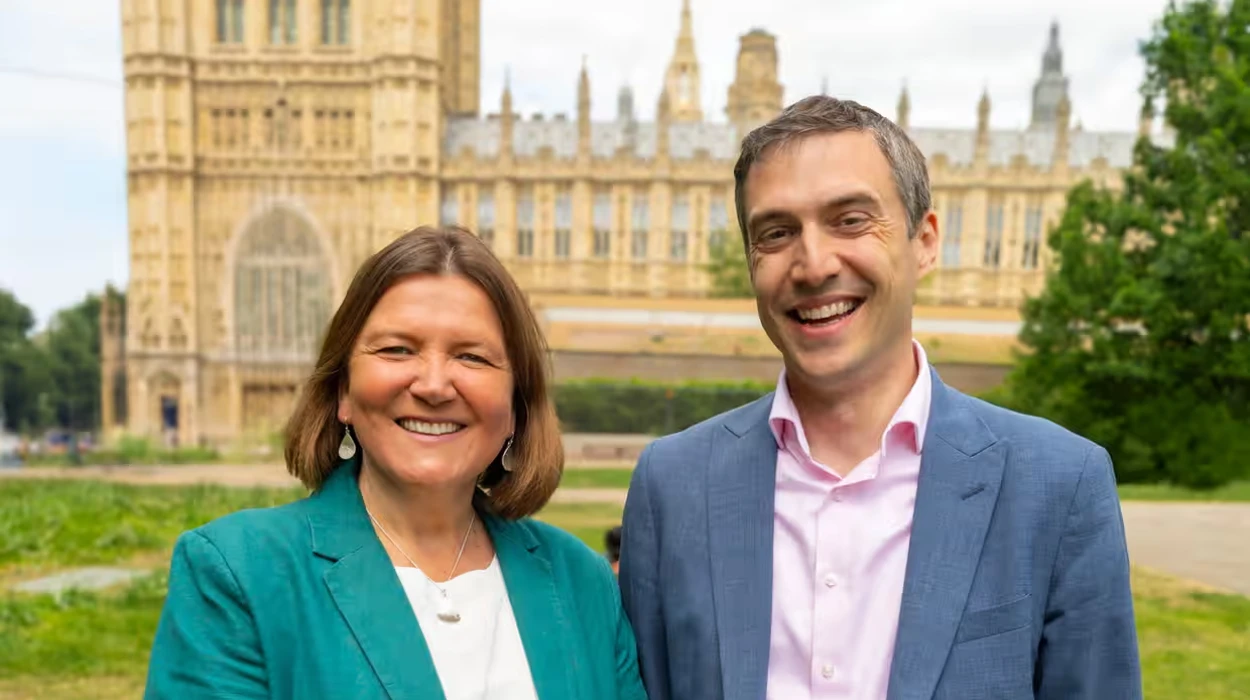UK (Parliament Politics Magazine) – Adrian Ramsay will run for re-election as Green Party co-leader with Ellie Chowns, aiming to continue their electoral successes and counter rising eco-populism.
As reported by The Guardian, Green MP Adrian Ramsay plans to run again for party co-leader with Ellie Chowns, arguing that shifting political loyalties requires experienced MPs at the forefront of party leadership.
What’s next for the Greens as Ramsay seeks another term?
Adrian Ramsay has remained the Green Party’s co-leader for four years with Carla Denyer. The pair and Ellie Chowns and Siân Berry secured parliamentary seats during the party’s most significant electoral breakthrough.
Last week, Carla Denyer said she would not stand for re-election as co-leader, choosing to dedicate her efforts to her Bristol Central constituency and campaigns like net zero and affordable housing.
While leadership nominations are set to open next month, the race is likely to feature Ramsay and Chowns against Zack Polanski. The deputy leader has already announced his bid to take the party in the direction of Reform-like “eco-populism.”
Mr Polanski praised the success of the outgoing leadership but stressed the need for the Greens to take a more aggressive stance. He urged the party to mirror Reform’s model and develop into a larger, more populist movement.
What did Ramsay and Chowns say about leading the Greens?
Ramsay and Chowns dismissed the criticism. They pointed to their success in winning Conservative-majority rural constituencies, showing they can win over fresh voters.
Ms Chowns, who turned a near 25,000 Tory majority to her advantage in North Herefordshire, said, “We’ve both secured seats that were once thought impossible to win.”
She added,
“We know what it means to win against the odds. We know what it means to build the biggest possible, most inclusive possible campaign teams, to inspire people to take action that results in previously unthinkable political change.”
Asked about Polanski’s comments, Mr Ramsay pointed out that their electoral record showed they could bring the Greens’ message to voters outside the usual Green base. He added that non-MPs would face difficulties in leading the party.
He stated,
“The reality is the MPs are setting the tone of what the Green party is saying on the issues of the day, because they’re being debated in parliament. There’s a reason why parties have their leaders as MPs.”
Mr Ramsay highlighted the need for electoral growth, especially in light of the “critical moment in British politics,” as polls reveal that Westminster voting intentions are nearly equal across five parties.
In a possible indirect remark towards Polanski, Ramsay urged the Greens not to focus on
“appealing to your existing supporters or a particular base,” stating, “We’re seeing with Kemi Badenoch and the Conservatives what can happen if a party elects a leader just based on appealing to a particular base of support.”
According to Ms Chowns, she and Mr Ramsay would make a “really well-matched pair” as leaders. In contrast to Denyer, who was frequently chosen for mass-party TV debates, Chowns seems poised to take on that same role.
She said,
“Both of us have got a huge history in the Green party,”
Adding,
“We are MPs, so we have that credibility of already being there at the heart of UK politics. And I think it’s really important for the party that our leaders are MPs, there every day, speaking out on that key political platform.”
What did Carla Denyer say about the Green Party’s record-breaking results?
Green Party co-leader Carla Denyer MP stated,
“The Green Party has broken new records by increasing our number of councillors for the eighth year running. While Labour and the Conservatives have buckled under the Reform insurgency, Greens just keep growing.”
She added,
“We have taken seats off the Tories and Labour and have shown we can be the positive and progressive antidote to Reform, holding their vote back in some places while breaking through onto other councils where Reform dominated.”

